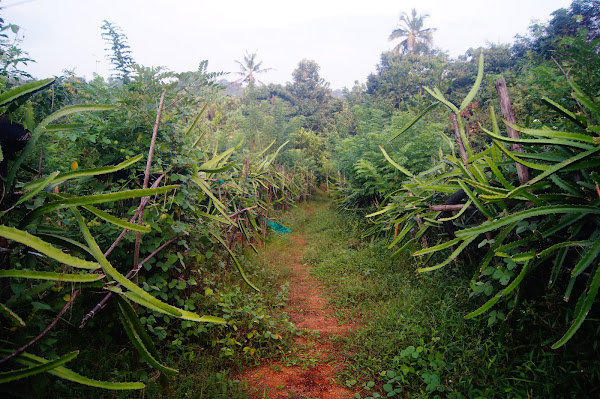Njottanjodiyan aka Physalis angulata - the ground berry we need !!!
Njottanjodiyan at Liz Pepper Gardens Forest Farm
Nestled within the lush embrace of Liz Pepper Gardens Forest Farm, an extraordinary gem thrives—a ground berry known locally as Njottanjodiyan or scientifically as Physalis angulata.
This unassuming plant, often overlooked, plays a crucial role in the biodiversity and sustainable practices championed at our forest farm. Join us on a journey to discover the wonders of Njottanjodiyan and why it has become an invaluable part of our agricultural tapestry.
Njottanjodiyan, with its delicate bell-shaped husk and vibrant orange berry, adds a touch of whimsy to our forest farm. Some regard it as a common weed,but this unpretentious plant conceals a treasure trove of nutritional and medicinal benefits. As stewards of the land, we've embraced Njottanjodiyan for its resilience, adaptability, and the myriad ways it enhances the ecological balance of our farm.
Also beyond its medicinal properties, Njottanjodiyan holds a place of honor in our culinary endeavors. The berries, with their slightly tangy flavor, make a delightful addition to salads, jams, and desserts. At Liz Pepper Gardens, we plan to experiment with incorporating this berry into various recipes, turning this wild treasure into a culinary sensation. And this was my childhood favorite, to eat this berry casually roaming in the forests, back then the dense forest was filled with many fruit trees. Still can’t wrap my head around the fact that the trees are forgotten and were forcefully pushed away in reality and in memory.
In traditional medicine, it has long been revered for its medicinal properties. Rich in antioxidants, it is believed to possess anti-inflammatory benefits. The plant's leaves and berries are used in herbal concoctions, showcasing the holistic approach we embrace in our forest farm practices.
At the core of Liz Pepper Gardens' ethos is a commitment to sustainable and regenerative farming. Njottanjodiyan perfectly aligns with this philosophy. Thriving in diverse conditions and only requires minimal intervention, making it a symbol of nature's ability to thrive when left to its own devices.
Propagation is a simple affair, with seeds being dispersed naturally or harvested for intentional planting. The plant's adaptability means it can thrive in both cultivated beds and undisturbed areas, contributing to the biodiversity of our forest farm.
It has become an integral part of the vibrant ecosystem at our forest farm. Beyond its culinary allure, this unassuming plant symbolizes the potential for transformation when we appreciate the richness hidden in our natural surroundings.
The berry-feeding njottanjodiyan trees stand tall and untamed, yet they generously provide a feast for both us and the birds. In a departure from traditional practices, our berry-feeding trees are allowed to flourish in their untamed glory. Rather than meticulously grooming each branch, we've embraced the wild, letting nature take the reins. The result? A thriving ecosystem where these trees not only survive but flourish in their unkempt state.
One of the most enchanting aspects of our unkempt berry-feeding trees is their role as a natural bird feeder. The abundance of berries attracts a symphony of avian visitors, creating a harmonious coexistence between nature and agriculture. The trees, with branches laden with ripe berries, become a haven for birds seeking a wholesome meal.
Contrary to the belief that well-groomed trees yield better harvests, our experience challenges this notion. These unkempt giants defy the norm, producing an abundance of berries that surpass expectations. The trees seem to thrive on the freedom to grow as they please, giving us a lesson in the art of letting nature take its course.
Beyond the tangible harvest, there's an unseen beauty in the unkempt nature of these trees. The intertwining branches, the wild foliage, and the untamed spirit of the trees add a touch of natural elegance to Liz Pepper Gardens. It's a reminder that sometimes, the best grooming is no grooming at all.
The success lies in the unplanned, unorchestrated growth that characterizes them. In allowing these trees to follow their natural course, we've witnessed a harmonious relationship between agricultural productivity and the unbridled beauty of nature.
Also



Comments
Post a Comment